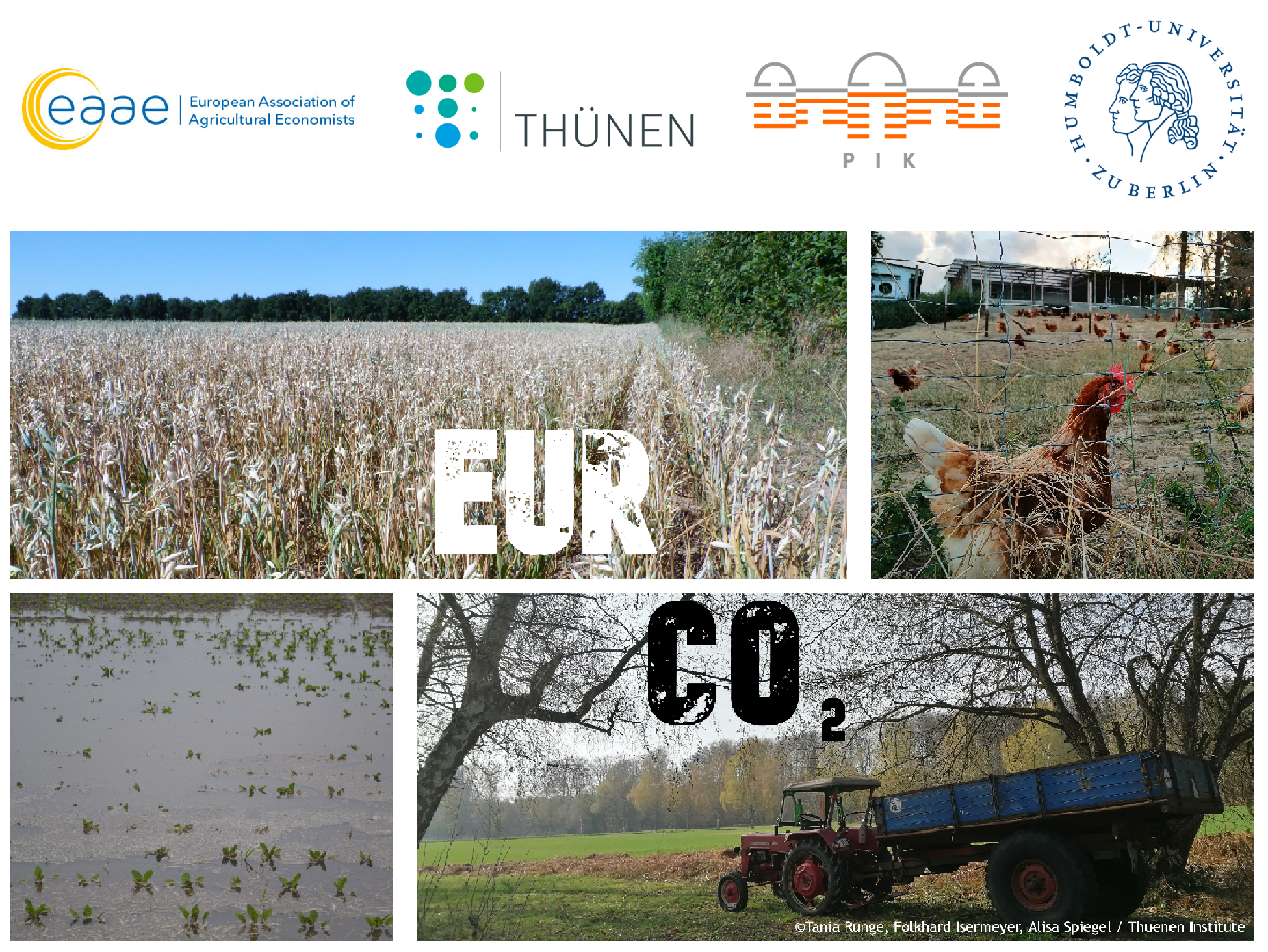
Greenhouse gas emissions in the EU agriculture and food sector
Potential and limits of climate mitigation policies and pricing instruments
5-7 October 2022
Berlin, Germany
Please use hashtag #EAAE181 to refer to the event in social networks
WLAN connection:
- eduroam or alternatively
- _Free_Wifi_Berlin is available for everyone
Theme
Globally as well as in the EU, agricultural activities, food production, and related land use and land use changes are major contributors to climate change. While being significantly affected by the consequences of climate change, agriculture is also a major cause of it, as well as an essential element in climate change mitigation. Carbon pricing schemes such as the EU Emissions Trading System (EU-ETS) have been established for other, fossil fuel intensive sectors in Europe and an extension to buildings and road transportation is currently discussed. The agricultural, land use, land use change and forestry sectors (LULUCF) have so far been excluded from trading and pricing schemes, although mitigation targets are formulated for these sectors as well, and in some member states even sector-specific targets have been set. Previous research has hinted at the potential of market-based solutions to meet mitigation targets, also in the agricultural sector, yet currently the discussions evolve mainly on farm-level payment or certification schemes under the new keyword “carbon farming”.
The focus of the seminar is on concepts, design, adoption and performance of greenhouse gas pricing policies and other market-based instruments in European agriculture and LULUCF. Papers that link experiences from other regions or domains (e.g., the energy sector) to useful lessons for EU agri-food system and its institutions or that provide insights into abatement cost and cost-efficient transformation pathways in this sector are welcome.
Objectives
In the EAAE seminar, we want to offer a platform to exchange ideas and to generate an integrated view of options, challenges and limits for pricing greenhouse gas emissions and other climate mitigation policies in EU agriculture. The seminar covers theoretical contributions as well as empirical quantitative and qualitative analyses of mitigation strategies and governance instruments. The seminar is relevant to the scientific community and to decision makers in business and politics, as well as to a broader audience interested in the topic. The seminar will be based on oral presentations in plenary sessions by invited speakers and in parallel sessions with contributed papers.
Topics
- Quantitative and qualitative assessment of climate mitigation policies in EU agriculture, in particular their effects on land use, markets, production systems, welfare, food security, and greenhouse gas emissions in the EU and worldwide, including leakage effects.
- Alternative designs of greenhouse gas pricing options for EU agriculture and LULUCF.
- Linking potential pricing schemes in agriculture to the EU-ETS and other mitigation measures
- Abatement cost and cost-efficient transformation pathways in the agri-food sector
- Evolvement of carbon markets under the Paris Agreement
- Interaction of private and public greenhouse gas pricing schemes
- Impacts of greenhouse gas pricing in agriculture throughout the agri-food chain.
- Consumers’ and citizens’ assessment of greenhouse gas taxes on agricultural and food products.
- Conflicts and congruence of greenhouse gas pricing in agriculture with other Sustainable Development Goals (SDGs).
- Role of climate clubs and coalitions in greenhouse gas pricing in agriculture.
Important dates
Abstract submission: extended till 20 June 2022
Author notification: 25 July 2022 (all authors have been notified)
Registration for presenters: 28 August 2022
Regular registration: 25 September 2022
Full paper submission: 1 November 2022 (extended). Please note that full paper submission is only mandatory for authors aiming for the special issue.